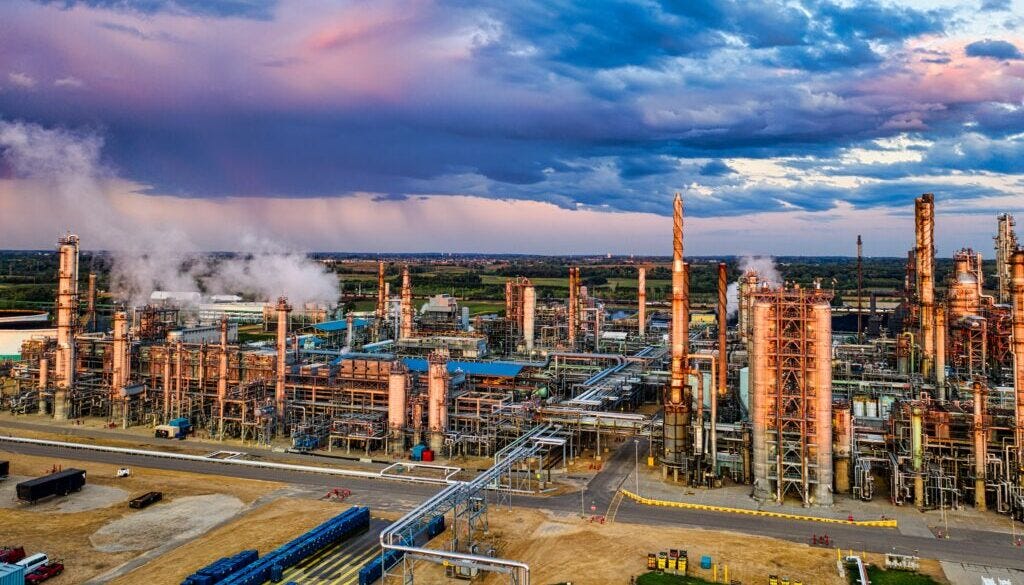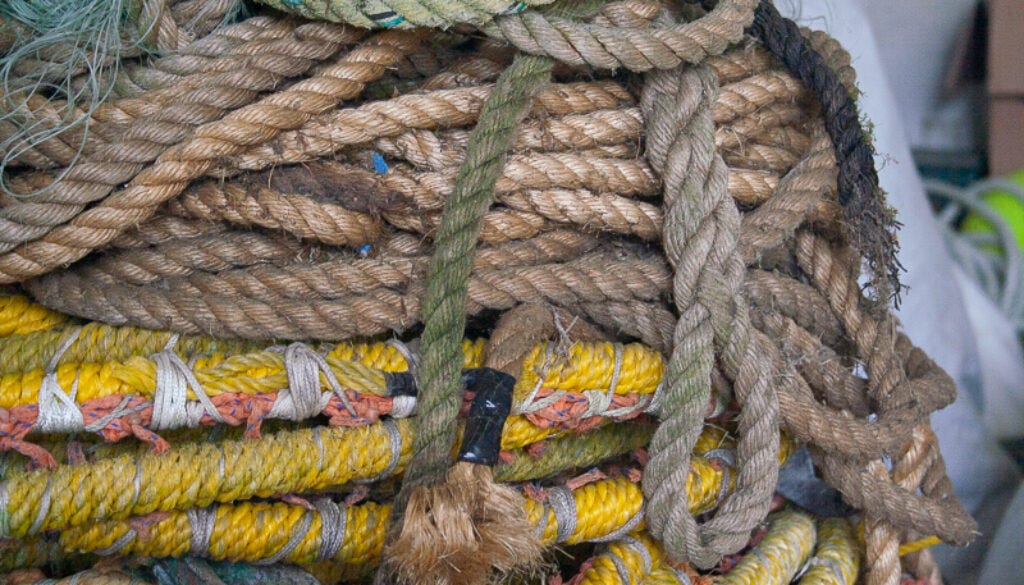Must-read recap: The New Lede's top stories
A report finds the EPA fails to regulate water pollution from oil refineries, and giving old fishing gear new lives may help address plastic pollution.
EPA failing to regulate water pollution from oil refineries, says new report
Millions of gallons of unregulated wastewater generated at oil refineries are flowing into US waterways every day, a regulatory failure endangering public health, according to a report released Thursday.
The new study, issued by the Environmental Integrity Project (EIP), reveals that the Environmental Protection Agency (EPA) is failing to regulate and enforce limits required by the Clean Water Act on dangerous wastewater pollution from the nation’s oil refineries — waste that can contain hazardous chemicals linked to cancer, anemia, and immune and neurological effects, such as cyanide, mercury, selenium, and benzene. The authors of the report call for the EPA to set more restrictive limits for refineries in order to protect public health and the environment.
The findings are evidence that progress on clean water issues has stalled, said Eric Schaeffer, the executive director of EIP and a former director of civil enforcement at the EPA. “These are not the fishable and swimmable waters we were promised [by the Clean Water Act],” he said.
Oil refineries transform crude oil into usable petroleum products such as diesel, gasoline, and kerosene. The refinery process uses enormous amounts of water, which refineries must then discard.
The report, which surveyed 81 refineries in 24 states, found that US refineries discharged an estimated 60,000 pounds of selenium, along with 10,000 pounds of nickel, 15.7 million pounds of nitrogen, and 1.6 billion pounds of chlorides, sulfates, and other pollutants, into waterways in 2021. The substances carry a range of potential dangers for fish, birds, other animals and people depending upon exposure levels.
According to the authors, these estimates are likely low as they do not include contaminants released during spills or in stormwater runoff.
More than two-thirds of the refineries examined by EIP were found to contribute to heavy pollution of downstream rivers, lakes, and estuaries, making such water bodies unable to support healthy aquatic life or safe recreation.
The current standards governing wastewater from refineries are “weak and outdated,” the EIP report states. (Read the rest of the story.)
New life for fishing gear aims to help address ocean plastic pollution
On the shores of southwest Washington state, little pieces of thick yellow rope sometimes wash ashore among tangles of seaweed and broken shells.
Ordinarily, these types of rope – fragments of line used in shellfish farming – simply add to the estimated 14 million tons of plastic pollution that circulate through the world’s oceans each year, harming a wide spectrum of delicate marine life as the plastics slowly break down into smaller pieces. Or they pile up in landfills.
But increasingly, networks of individuals and organizations, including nonprofits, academics, and corporations, are working to interrupt that pollution cycle through a range of innovative efforts that is part of a broader movement around the world aimed at addressing ocean plastics.
In one example of those efforts, a fishing gear recycling company called Net Your Problem recently worked with the Ocean Legacy Foundation and the Washington Sea Grant research institute to give new life to those old fishing lines washing ashore. Shredded ropes were turned into tiny plastic pellets, which were then molded into tools for measuring crabs during harvest by students at Western Washington University (WWU).
“Better than putting it in the landfill,” Washington-based commercial fisherman Mark Casto said of his separate effort to work with Net Your Problem to recycle 13,420 pounds of line from his operation, which harvests king crab, snow crab and salmon from Alaska.
Commercial fishing is a global industry. In 2018, 96.4 million tonnes of wild fish were caught worldwide — a record high. In 2020, US commercial fishing brought in $4.8 billion, depending largely on crabs, lobsters, salmon, shrimp and scallops.
To do this work, commercial fishermen use gear like longlines and gillnets that have been made from plastic since the mid-20th century. Virgin plastic, a byproduct of natural gas or crude oil, is a strong material that requires a lot of energy to produce and takes hundreds of years to break down. (Read the rest of the story.)


